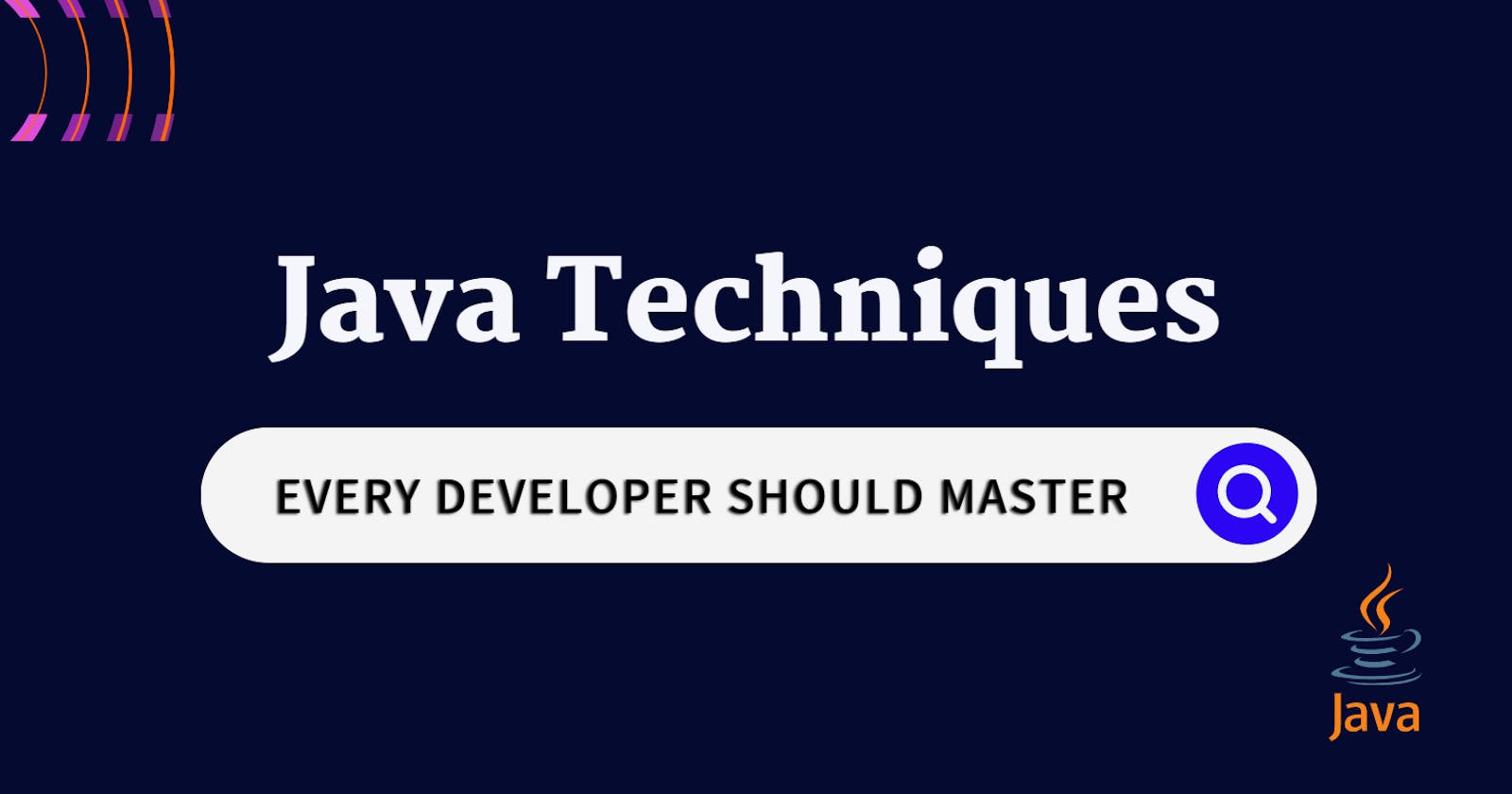The 7 Secret Java Techniques Every Developer Should Master!

Introduction
Are you a Java developer looking to level up your skills? Are you eager to uncover the hidden gems of Java programming that can make your code more efficient and powerful? Look no further! In this article, we will explore the 7 secret Java techniques that every developer should master. These techniques will not only boost your productivity but also enhance your ability to create high-quality, maintainable code.
7 Secret Java Techniques Every Developer Should Master!
Java is a versatile and widely used programming language, offering awesome features and functionalities. By mastering these 7 secret techniques, you'll gain a competitive edge and become a more proficient Java developer. Let's dive in and explore these techniques one by one:
1. The Power of Multithreading
Multithreading is a technique that allows multiple threads to execute concurrently within a single Java program. By leveraging the power of multithreading, you can achieve greater performance and responsiveness in your applications. With the proper use of synchronization and thread pooling, you can avoid common pitfalls such as race conditions and deadlocks.
2. Effective Exception Handling
Exception handling is a critical aspect of robust Java programming. By mastering the art of exception handling, you can create more resilient and reliable applications. Understanding the various types of exceptions, implementing try-catch blocks, and using finally clauses effectively will help you handle errors gracefully and ensure proper resource cleanup.
3. Mastering Generics
Generics provide a way to create reusable code that can work with different data types. By using generics, you can write more flexible and type-safe code, leading to better performance and easier maintenance. Gain a deep understanding of generics, including wildcard types, bounded type parameters, and type inference, to unleash their full potential in your Java projects.
4. Exploring Functional Programming
Functional programming is gaining popularity in the Java ecosystem, thanks to the introduction of lambda expressions and the Stream API. By embracing functional programming techniques, you can write concise and expressive code that is easier to understand and maintain. Learn how to leverage lambda expressions, method references, and functional interfaces to unlock the power of functional programming in Java.
5. Advanced Debugging Techniques
Debugging is an essential skill for every developer. By mastering advanced debugging techniques, you can efficiently identify and fix issues in your Java code. Familiarize yourself with tools like the Java Debugger (jdb), remote debugging, and logging frameworks to streamline your debugging process and save valuable time during development.
6. Optimizing Performance with Java Profiling
Performance optimization is crucial for developing high-performance Java applications. By using Java profiling tools, you can identify performance bottlenecks, memory leaks, and inefficient code sections. Learn how to leverage profilers like VisualVM and Java Mission Control to analyze your application's performance and make targeted optimizations.
7. Building Secure Applications
Security is of utmost importance in today's digital landscape. By mastering techniques for building secure Java applications, you can protect your software from potential vulnerabilities and attacks. Understand secure coding practices, encryption algorithms, and authentication mechanisms to ensure the confidentiality and integrity of your data.
FAQs (Frequently Asked Questions)
Q: What are the 7 secret Java techniques every developer should master?
The 7 secret Java techniques every developer should master are: multithreading, effective exception handling, mastering generics, exploring functional programming, advanced debugging techniques, optimizing performance with Java profiling, and building secure applications.
Q: Why is multithreading an important technique to master in Java?
Multithreading allows for concurrent execution of multiple threads, resulting in improved performance and responsiveness in Java applications. Mastering multithreading helps developers avoid race conditions and deadlocks, ensuring smooth and efficient program execution.
Q: How can I become proficient in exception handling in Java?
To become proficient in exception handling, it is essential to understand different types of exceptions, implement try-catch blocks effectively, and utilize finally clauses for resource cleanup. Practice handling specific exceptions and learn about best practices for error handling.
Q: What benefits do generics offer in Java programming?
Generics in Java enable developers to write reusable code that can work with different data types. By using generics, you can improve code flexibility, type safety, and performance. Understanding wildcard types, bounded type parameters, and type inference will help you harness the full potential of generics.
Q: How can I optimize the performance of my Java applications?
Optimizing Java application performance involves identifying bottlenecks and inefficient code sections. Java profiling tools like VisualVM and Java Mission Control can help analyze application performance and guide targeted optimizations. Techniques such as memory management, algorithmic improvements, and efficient I/O handling contribute to better performance.
Q: What are some best practices for building secure Java applications?
Building secure Java applications requires following secure coding practices, utilizing encryption algorithms, and implementing robust authentication mechanisms. Developers should also be aware of common security vulnerabilities and regularly apply patches and updates to protect against potential threats.
Conclusion
Congratulations! You have now uncovered the 7 secret Java techniques every developer should master. By incorporating these techniques into your coding repertoire, you'll elevate your Java skills and become a more proficient and confident developer. Remember to practice these techniques, experiment with real-world scenarios, and continuously improve your coding abilities.
Now that you're equipped with these secrets, it's time to take your Java programming to new heights. Embrace the power of multithreading, master exception handling, delve into generics and functional programming, and optimize your application's performance. With these skills in your toolkit, you'll be well on your way to becoming a Java master!
Thanks for reading 👍, See you in the next article.
 Develop and Solve
Develop and Solve